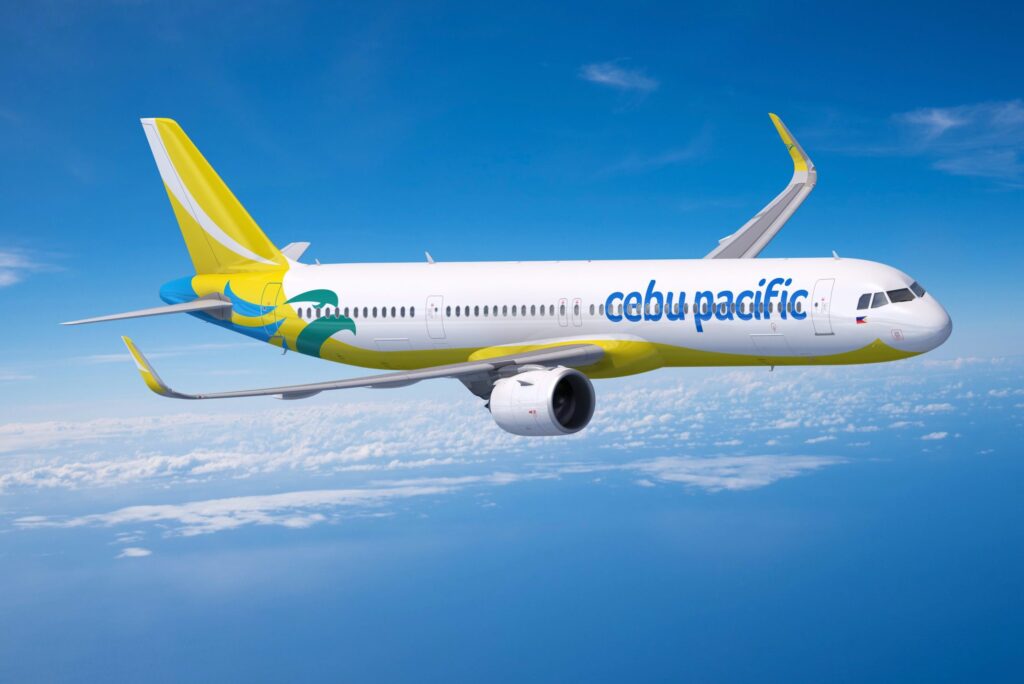Cebu Pacific has cemented a pivotal agreement with Airbus for a firm order of 70 A321neo aircraft, sparking a new chapter in their partnership.
This substantial order, finalised in Manila, underscores Cebu Pacific’s focus on growth, sustainability, and innovation.
Finalisation of the Airbus Order
The firm order for 70 A321neo aircraft signals a significant achievement for Airbus, marking the consolidation of a memorandum of understanding signed in July. The order was executed in Manila by Cebu Pacific CEO Mike Szucs and Airbus Executive Vice President Benoît de Saint-Exupéry, affirming a strategic relationship that underscores operational efficiency and sustainability.
The collaboration showcases Cebu Pacific’s commitment to enhancing service standards and reducing its carbon footprint. This initiative aligns with the broader economic and connectivity goals of the Philippines, as articulated by its CEO.
Airbus’s Strategic Position
For Airbus, this order strengthens its position in the Asia-Pacific region, highlighting the popularity of its single-aisle product line. The A321neo is celebrated for its superior economics, performance, and fuel efficiency. According to Airbus, these attributes make it an ideal choice for carriers like Cebu Pacific, seeking expansion.
The aircraft’s advanced design features, including new generation engines and Sharklets, offer substantial benefits. They deliver over 20% fuel savings and CO₂ reduction, while also making significant improvements in noise reduction and passenger comfort.
Growth Trajectory of Cebu Pacific
Cebu Pacific currently operates an extensive fleet of Airbus aircraft aimed at regional connectivity. The airline’s dedication to expanding its operations has been evident over the years.
With 61 A320 family aircraft in service, the company has established itself as a dominant player in the region. Its fleet strategy also includes nine A330 widebodies, serving high-density routes in the Middle East and Asia, reflecting its strategic foresight.
With the addition of these 70 A321neo aircraft, Cebu Pacific’s backlog now stands at 94 A320neo family planes and seven A330neo jets, positioning it for accelerated growth.
Future Implications for the Aviation Industry
This order not only reflects Cebu Pacific’s growth ambitions but also represents a broader trend in the aviation industry towards sustainability. The focus on fuel efficiency and emissions reduction has become a cornerstone of modern airline strategies.
Cebu Pacific’s decision indicates a shift towards environmentally responsible operations, which is critical as airlines navigate regulatory pressures and consumer expectations.
Technical Advancements of the A321neo
The A321neo is the largest member of the A320neo family, offering unparalleled range and performance. It features new generation engines, enhancing efficiency.
The aircraft’s design includes innovations such as Sharklets, which contribute to significant fuel savings and noise reduction. These features support Airbus’s commitment to sustainability and customer satisfaction.
Airbus has seen over 6,500 A321neo orders globally, a testament to its success and the trust it has garnered among carriers worldwide.
The Role of Airbus’s European Plants
Airbus’s European operations, particularly in Broughton and Filton, play a crucial role in the production of the A321neo. These sites are integral to wing manufacturing, a key component of Airbus’s manufacturing strategy.
The facilities employ thousands of staff, highlighting the economic impact of Airbus’s manufacturing prowess in Europe.
Cebu Pacific’s strategic acquisition of 70 A321neo aircraft from Airbus marks a pivotal moment in their expansion. This move not only enhances their operational capabilities but also reinforces a global trend towards sustainable aviation practices.

